Please note, program provided below is current as of the time of publication. Program details, timings and speakers are subject to change without notice. We recommend checking back regularly for the most up-to-date information.
Please note: events marked with * are by invite only. All other events and sessions are open for all Turning Point delegates
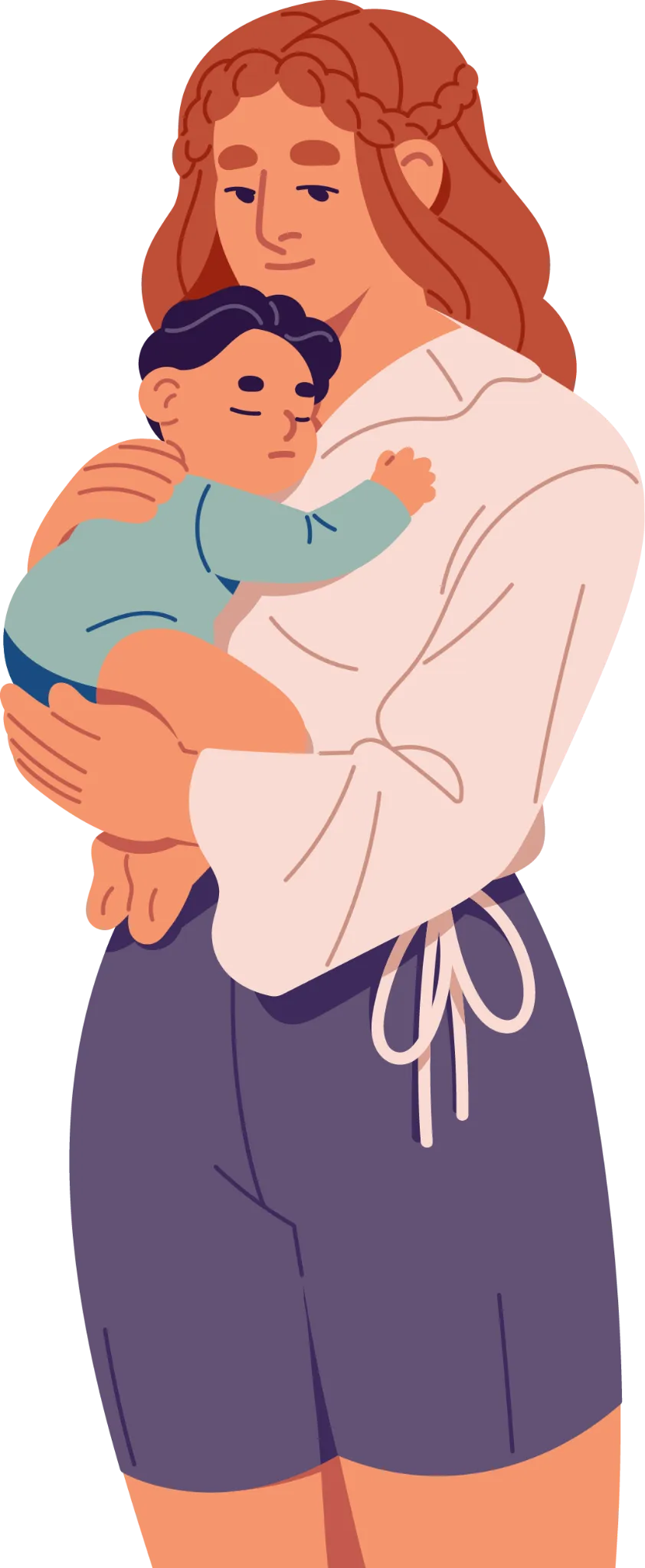
1.00pm
Registrations & Arrivals
1.30pm
Welcomes
Brave Foundation CEO Jill Roche
1.45pm
Setting the Scene
Dr Jennifer Weber & Dr Bengianni Hall-Pizzarani
2.00pm
Research Panel
Prof. Melissa O’Donnell, Prof. Sarah Wise, Dr Jacynta Krakouer, Prof. Cath Chamberlain
2.45pm
Research Panel
Dr Amy Gill, Dr Jade Purtell, Miss Sarah Morris
3.30pm
Break
3.40pm
Table Discussions
4.10.pm
Panel Response: Policy & Philanthropy
To be announced
4.30pm
Panel Response: Lived Experience
To be announced
4.50pm
Wrap-up
Dr Jennifer Weber & Dr Bengianni Hall-Pizzarani
Special guest speaker Dr Billy Garvey.
Featuring a photography display ‘Strength in Parenthood’, proudly supported by the Minderoo Foundation.
Canapés and drinks provided.
8.15am
Registrations, Coffee & Arrivals
8.45am
Welcomes
Brave Foundation CEO Jill Roche
MCs
9.15am
Opening Address
To be announced
9.30am
Plenary Session 1:
Where Infant Safety Sits in Australia Today
Prof. Melissa O’Donnell & Sarah Wise
10.00am
Plenary Session 2: Supporting Aboriginal & Torres Strait Islander Families to Stay Together From the Start
Dr Jacynta Krakouer & Prof. Cath Chamberlain
10.30am
Plenary Session 3:
An International Perspective: Learnings from the UK’s Largest Young Parent Organisation
WILD Young Parents (United Kingdom)
11.00.am
Break
11.15am
Break-out streams
Shaping Tomorrow’s Support for Young Parents
Featuring presentations by: Thriving Queensland Kids/IDAC, WILD Young Parents (UK), Newpin Australia/Gentle Beginnings
Trust at the Core: Relationship-based Support
Featuring presentations by: Micah Projects, St Philip’s Christian College DALE Young Parents School
The Power of Collective Practice
Featuring presentations by: YFS Step by Step Program, Brave Foundation, Palmerston Child & Family Centre’s Young Mums Strong Mums
1.15pm
Break
2.00pm
Break-out streams
Beyond the Surface: Supporting the Unseen & Unheard
Featuring presentations by: VACCA, The Reily Foundation, Australian Childhood Foundation Bringing Up Great Kids
Privileging Lived & Living Experience
Featuring presentations by: Uniting VicTas, Junction Australia’s The Young Parent Project, Village Connect
Scaffolding for Success: Meeting Critical Needs First
Featuring presentations by: Hobart City Mission Small Steps, Lady Musgrave Trust/YFS Step by Step Program
4.00pm
Break
4.15pm
Pass the Mic
Reflections, Questions & Discussions from the Floor
5.00pm
End of Day
8.30am
Coffee & Arrivals
9.00am
Welcome
9.15am
Panel Discussion 1: Framing the Rights of the Child
To be announced
10.00am
Panel Discussion 2: Preventing Multi-Generational Child Protection Involvement
To be announced
10.45am
Break
11.00am
Pass the Mic
Reflections, Questions & Discussions from the Floor
11.45am
Closing Remarks
Brave Foundation CEO Jill Roche
MCs
12noon-1.00pm
Lunch & Networking
Connection & Creativity for Lived Experience delegates & participants

Billy Garvey is a developmental paediatrician with over 20 years of experience working with children and families in various settings. As a senior specialist at one of the largest tertiary paediatric hospitals in the world, he works with families, trains clinicians and professionals who support children, and conducts research in child development and mental health.
Billy is also the founder of Guiding Growing Minds (GGM), a social enterprise dedicated to giving all children the opportunity to reach their full potential and live rich, meaningful lives. He is a passionate advocate for supporting those who care for kids – parents, educators, sports coaches, clinicians, and family support workers – by equipping them with the tools and knowledge to foster healthy development.
As part of this vision, Billy hosts the Pop Culture Parenting podcast, which blends expert insights with pop culture references to provide practical strategies for parents and caregivers.
He is also the author of Ten Things I Wish You Knew About Your Child’s Mental Health, a book aimed at empowering families and communities to better support children’s growth and well-being.
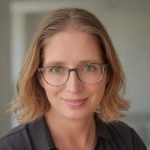
Dr Amy Gill is a freelance researcher and social policy consultant with over a decade of experience in the academic, non-profit, and government sectors. She completed a PhD at the University of Sydney in 2024. This study consisted of a three-phase mixed-methods investigation of service responses to pregnancy and parenthood among care-experienced young people in New South Wales. As a care-experienced child and family welfare specialist, reflexivity and positionality are central to her work.
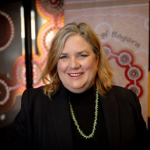
Professor Catherine Chamberlain is a Trawlwoolway woman (Tasmania) and Head of the Indigenous Health Equity Unit at the Melbourne School of Population and Global Health, University of Melbourne. A registered midwife and public health researcher, her research aims to identify perinatal opportunities to improve health equity across the lifecourse. She is inaugural Editor-In-Chief of First Nations Health and Wellbeing Lowitja Journal, inaugural Chief Midwifery Officer for the College of Aboriginal and Torres Strait Islander Nursing and Midwifery, and Principal Investigator for three large multi-disciplinary projects which aim to address intergenerational trauma impacting Aboriginal and Torres Strait Islander communities in the perinatal period.
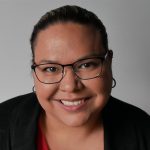
Dr Jacynta Krakouer (PhD Melb) is a Minang Noongar woman from southwestern Australia, living and working on Wurundjeri Country in Melbourne. She is an Aboriginal Enterprise Fellow and Aboriginal Strategy and Engagement Lead at the Australian Centre for Child Protection at the University of South Australia. Jacynta’s expertise relates to Aboriginal and Torres Strait Islander Peoples in child protection and out-of-home care, particularly prenatal reporting and infant removal, and cultural connection. Jacynta leads multi-jurisdictional research projects in perinatal child protection across Australia and is key leadership personnel for the national Supporting Aboriginal Families to Stay Together From the Start (SAFeST Start) Coalition.
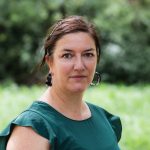
Dr Jade Purtell is a transdisciplinary researcher focussed on out-of-home care and transitions from care working across academia and the community sector to promote young people’s participation in research, policy development and practice. Jade’s PhD project focussed on care leavers parenting through their transitions from care and identified needs for healing trauma and loss and promoting social connection in parenting support. Jade is co-convener of the International Network on Participation in Alternative Care (INPAC) and co-editor of the book ‘Children’s Rights to Participate in Out-of-Home Care: International Social Work Contexts’.
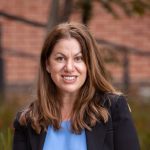
Professor Melissa O’Donnell is Deputy Director of Research at the Australian Centre for Child Protection, University of South Australia. Melissa is an internationally recognised researcher and leads a program of research on pre-birth and infant involvement in child protection. Melissa collaborates with those with lived experience, government and non-government agencies to provide evidence to inform policy and practice to improve child and family outcomes.

Natalie Lewis is a proud Gamilaraay woman and Queensland’s Aboriginal and Torres Strait Islander Children’s Commissioner. She established the Office of the Aboriginal and Torres Strait Islander Children’s Commissioner (OATSICC) within the Queensland Family and Child Commission, embedding a culturally grounded, child rights-based model of independent oversight for First Nations children. Formerly CEO of QATSICPP, she brings more than 25 years’ experience driving child protection reform and is recognised nationally and internationally for advancing accountability, amplifying children’s voices, and championing justice, cultural safety, and self-determination.

Sam is Operations Lead at WILD Young Parent Project, the UK’s largest organisation supporting young parents, with a mission to ensure every young parent family has a fair start. Over the past 33 years, WILD has supported more than 20,000 young parents and babies across Cornwall and leads a national network of over 80 organisations working to challenge inequality and influence policy and practice. Sam has over 20 years’ experience, spanning grassroots delivery, governance and strategy, and specialises in turning vision into practical, system‑wide change. As the child of a teenage mother, she brings lived understanding and deep commitment to this work.

Mercy Chipo is an international development practitioner with three decades of experience advancing women and children’s rights and gender equality in Africa, Australia, Aotearoa New Zealand, South Asia and the Pacific. Proud mum of one and mother of many following her African heritage of Hunhu/Ubuntu her work centres community, voice, shared leadership and locally driven solutions grounded in feminist and decolonial practice. She holds a Master of Philosophy in Women’s Studies from Massey University and is privileged to live on Wurundjeri land.

Sarah Morris is a Research Fellow and Sessional Academic in the Department of Social Work at Monash University. A qualified social worker, her professional background spans out-of-home care, mental health, disability, and men’s rehabilitation forensic practice. Informed by lived experience of out-of-home care and as a young mother, Sarah is deeply committed to advancing trauma-informed, rights-based, and co-designed approaches that centre the voices of care-experienced populations. Having personally navigated prejudice and assumptions directed towards care-experienced young parents, Sarah brings both scholarly and experiential insight to conversations on improving early intervention and addressing systemic inequalities faced by care-experienced parents.

Professor Sarah Wise has been employed in research intensive roles for almost three decades. She currently works as a research specialist within the Department of Social Work at the University of Melbourne, where she leads the Child Welfare Research Group. The Child Welfare Research Group works with community organisations and industry partners to transform child protection systems and improve the lives and experiences of children and families with vulnerabilities. The Child Welfare Research Group is currently funded to undertake collaborative research projects focused on child protection in the perinatal period and child protection for Aboriginal children.

Alys Sebire is the Acting Team Leader for VACCA’s Northern Lakidjeka and Aboriginal-led Case Conferencing (ALCC) programs. Prior to this, she was the original convenor in the ALCC trial. Through her own lived experience, Alys is passionate about supporting Community who are vulnerable. She believes that by offering self-determined early intervention delivered in a culturally appropriate setting, children and families have a better outcome, remain safe, and continue to engage long-term with services.

Amanda McInnes is the Director of St Philip’s Christian College Young Parents, leading Newcastle and Central Coast campuses. With a Masters in Leadership and over 20 years’ experience, she is a dynamic and engaging advocate and communicator dedicated to helping young parents re-engage with education during pregnancy and parenthood. Amanda champions equal access to quality education, builds strong partnerships across health, business, and non-profits, and drives innovation and collaboration to support vulnerable youth and break cycles of generational disadvantage.

Amy Blair is the Program Manager for the Thriving Young Families Step by Step program at YFS in Logan. Amy holds a Master of Social Work and has over a decade of experience working with children and families. She is passionate about supporting families through a person-centred, holistic approach and ensuring that the voice of lived experience leads the way in the development of program, services and advocacy work. Amy has extensive experience working with young families and managing multi-disciplinary teams for positive impact across generations.

Becky Wood is 25 years old and a parent of two children, aged 7 and 4. She has been involved with Village Connect since it first began. Through Village Connect, she has been able to access personalised support for my family, especially for her son, who has accessed an occupational therapist and other opportunities they wouldn’t have had without their guidance and assistance. Becky is currently studying a Diploma of Community Services (Case Management) and volunteering as a parent in the Karitane Young Parents Program, which she has been part of since 2017 when she first became pregnant. Becky now contributes as a parent volunteer and continues to stay involved in supporting other young parents.

Chloe O’Donnell is a Senior Customer Success Manager leading Sonder’s partnership in the Village Connect program. She is focused on improving families’ access to early intervention support by combining the strengths of Sonder’s digital platform with 24/7 human-centred care. Chloe works closely with Karitane and Uniting to ensure families in South Western Sydney receive seamless, wrap-around support. She is passionate about removing barriers to care, improving system navigation and ensuring families can access the right support, at the right time.

Courtney Baker, Regional Manager, Uniting, NSW Courtney has over 19 years of experience in Child Protection, Out-of-Home Care, and Early Intervention, advocating for vulnerable families and communities in South West Sydney. Beginning her career in statutory child protection, she worked directly with families to ensure child safety and well-being. Now a Regional Manager at Uniting, she leads an Early Intervention portfolio, specalising in managing linker and Navigator programs across South West Sydney. She is passionate about driving proactive, family-centred support. With a strong commitment to collaborative and innovative approaches, Courtney is dedicated to empowering communities and ensuring every family has access to the resources they need to thrive.

Danielle Hynes- Stevens is a Peer Support Worker with The Young Parent Project. She is passionate about sharing her stories of strength and resilience to support you parents to believe in themselves and achieve their goals.

Grace Rafferty, Senior Practitioner at Uniting Communities, holds a Bachelor of Psychological Science and brings a strong foundation in child protection. Over two years with the Newpin Program, she’s progressed from Family Therapist to Senior Coordinator to Senior Practitioner, reflecting her commitment to therapeutic development and meaningful change. Grace champions best practice and translates therapeutic frameworks into practical, compassionate support. Guided by the power of collaboration, she works to build resilience and lasting outcomes for families through empathy and evidence-based approaches.

Hanna Richardson is Family Services Manager at Hobart City Mission and has over 20 years in the community services sector. She helped establish Safe Space, a 24/7 program for adults sleeping rough, and champions trauma-informed practice as a cultural foundation. Hanna is passionate about inclusive services and practical, relational support for families. She currently oversees multiple programs, including the Small Steps residential program for young mothers and their children.

Hayley McLay has been leading The Young Parent Project at Junction since 2023. She has a Master of Social Work and a background in Education. Hayley is committed to working with families and children in community settings with a focus on innovative early intervention responses.

Jacinta Morey is the Lived Experience Lead and Peer Support Worker for our Parent Inclusion and wider Programs that aims to support families navigate the child protection system. Jacinta is Deputy Chair of the Direct Experience Group and a certified Family Group Conference Facilitator.

Jo Ubilla has over 18yrs experience leading teams across the Health, Disability and Child and Family sectors. She is a passionate advocate for systems reform and equity in service delivery. As Program Lead and Systems Navigator with Karitane, working within Village Connect, she leads a multidisciplinary team supporting families in Southwest Sydney. Jo works to remove barriers to support and make services more accessible for marginalised families, embedding early intervention and promoting connectedness at a service level, for the benefit of the those accessing services. Her approach is grounded in co-design and grassroots change, ensuring services are inclusive, responsive, and empowering. Jo brings a strong systems lens to her work, driving reform from the ground up.

Jo Villa brings over 30 years of experience in the community sector across NSW and QLD. She is the Cluster Lead for Women, Children & Families at Micah Projects, with extensive expertise in specialist family support, permanent care and adoption (OOHC), and domestic and family violence (DFV), including leading two High‑Risk DFV programs. Jo currently oversees six teams focused on supporting children and families experiencing homelessness, DFV, adolescent‑to‑parent violence, and early years vulnerability, including specialist programs for young mothers and pregnant women.

Kerrie holds a Master’s degree in Childhood Psychology and a Bachelor’s degree in Psychology, with over seven years’ experience supporting children, families and communities experiencing adversity across research and client-facing practice. At Uniting Vic.Tas, she has held roles as a Kinship Practitioner and currently as Family Services Evaluation Project Officer, where her work focuses on strengths-based evaluation, amplifying lived experience, and translating evidence into meaningful, real-world practice to improve outcomes for families.

Kimberley Powell is Service Manager at Uniting Communities, leading programs like Newpin, Gentle Beginnings, and Community Connections, which work to strengthen families and create lasting positive change. With over 15 years in the not-for-profit sector, she specialises in child protection and trauma-informed practice, integrating neuroplasticity principles to help families thrive. Kimberley holds graduate certificates in Business Administration and Childhood Developmental Trauma, plus extensive training in mental health, child safety and leadership. Passionate about about creating environments where children and families can flourish, she drives systemic change that empowers communities.

Kim Heath has worked extensively in direct service provision as a counsellor and case manager for over 10 years. For the past 7 years, Kim has held roles as a Senior Practitioner and Team Leader within the Home Based Care program and the Family Preservation and Reunification Response at Uniting Vic.Tas.

Lahrissa is a dedicated Consumer Partner at Uniting, working across AOD/MH services and Family Services, a role she has held for nearly two years. She brings a wealth of lived experience and a passion for advocacy, focusing on ensuring the voices of service users are at the heart of decision-making. Through her work, Lahrissa is committed to fostering inclusive environments, improving service delivery, and collaborating with community stakeholders to create meaningful change and better outcomes for all.

Leah is a Brave Foundation mentor working with young parents in Hobart. Leah has a diploma in Youth Work and Community Welfare, as well as 15 years experience in the sector across greater Hobart. Previous roles have been in youth and family support, program and community development. Leah has worked frontline, through to management roles. She is particularly passionate about supporting young people to find their voice, explore their strengths and establishing an environment to realise their potential and thrive.

Megan is the Team Leader of the Young Mothers for Young Women program at Micah Projects, a program that has been supporting young women and families for over 17 years. She brings more than a decade of experience leading youth programs across Brisbane and Logan, with a strong focus on supporting young parents and families. Megan is passionate about empowering young women through strengths-based, trauma-informed practice and community connection.

Merinda began her journey with Zoe Support Australia as a volunteer in 2013 as assistant to the Executive Director, becoming the Finance & Program Manager, with previous experience as a Finance Manager in the private sector. In 2020, Merinda was elected CEO of Zoe Support and now guides all staff and volunteers towards a common vision of Connecting, Inspiring, Learning for young mothers and children in Mildura. Merinda holds a Diploma in Accounting & Business, a Graduate Certificate in Health Management and has completed the Cranlana Ethical Leadership Colloquium, Mallee Leadership Program and Victorian Healthcare Association Mentoring Program. Merinda is the Deputy Chair of the Mallee Child & Family Services Alliance and a committee member of the Australian Young Pregnant & Parenting Network.

Pat is the Manager of the Parenting and Early Years program at the Australian Childhood Foundation with a background in early childhood. Pat supports early childhood educators with their trauma informed knowledge and practice about relational trauma and its impact on young children and their families. Pat supports professionals in their work with parents and works directly with expectant and new parents on their journey into parenthood.

Rachel Kemish is an experienced social work leader with over 27 years of practice in child protection, family support, and quality and practice leadership. She oversees The Reily Foundation’s operational systems and program delivery, ensuring services are grounded in best practice and focused on outcomes that strengthen family capacity and safety.

Roger has led policy, strategy and planning for over 20 years, developing trusted relationships with cross-government, non-government, community and industry stakeholders. Across his career, Roger has been a strong advocate for policy change and reform, and has led several influential collaborations including for the COAG Health Council, the Ministerial Forum on Food Regulation, National Partnership Agreements and the development of the Queensland Equity Framework, to frame the regulatory and policy reform agenda required to create more thriving and equitable communities.

Sam is Operations Lead at WILD Young Parent Project, the UK’s largest organisation supporting young parents, with a mission to ensure every young parent family has a fair start. Over the past 33 years, WILD has supported more than 20,000 young parents and babies across Cornwall and leads a national network of over 80 organisations working to challenge inequality and influence policy and practice. Sam has over 20 years’ experience, spanning grassroots delivery, governance and strategy, and specialises in turning vision into practical, system‑wide change. As the child of a teenage mother, she brings lived understanding and deep commitment to this work.

Tessa Bolto is a Senior Project Officer in the Child Protection Reform team at VACCA. Holding a Master of Social Policy from the University of Melbourne, Tessa is deeply passionate about creating systemic change to reform the way that Victoria’s child protection system is experienced by Aboriginal families.

Victoria Parker is CEO of The Lady Musgrave Trust, Queensland’s oldest charity for young women and children facing homelessness. She brings decades of experience in housing and community development, and is recognised for championing lived experience-driven solutions. Victoria leads partnerships that place women’s voices at the centre of design, delivery, and evidence-based advocacy.

Vidya is Brave Foundation’s Northern Team Leader, bringing nearly a decade of experience across the social and community services sector. Beginning her career in Canada supporting individuals with complex mental health needs, she later worked in Australia as a Case Manager and Team Leader in homelessness and mental health outreach. At Brave, Vidya is committed to creating connection and ensuring young parents feel seen, heard and valued – continuing her dedication to compassionate, person‑centred support.
© 2026 All Rights Reserved.